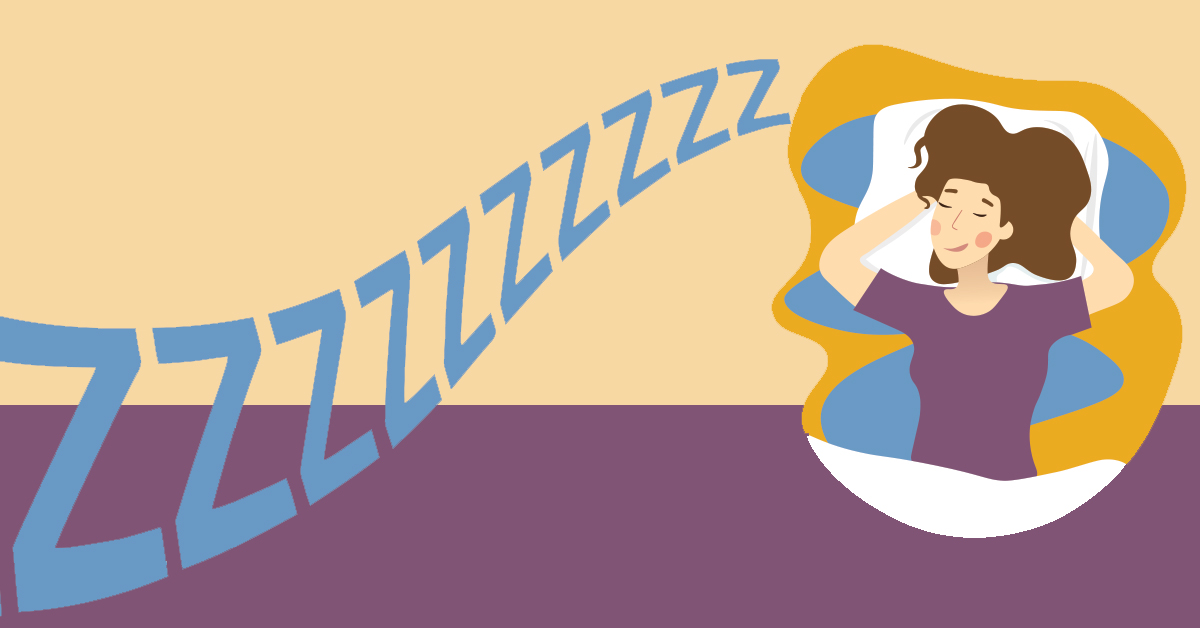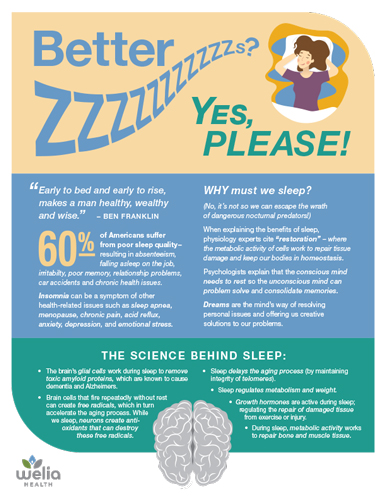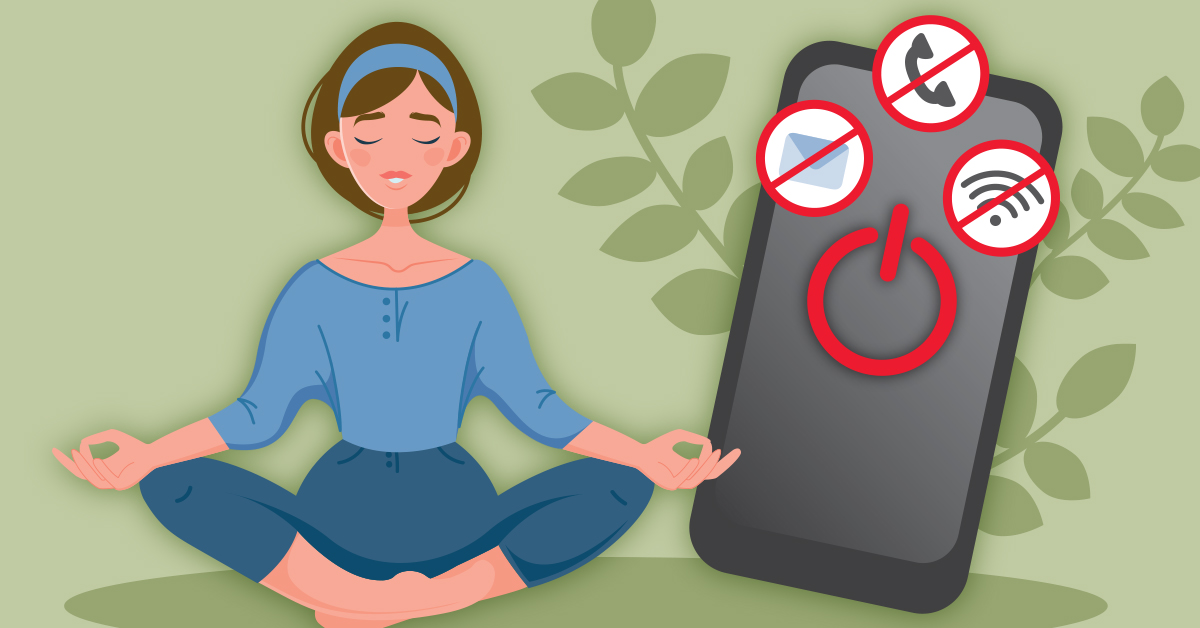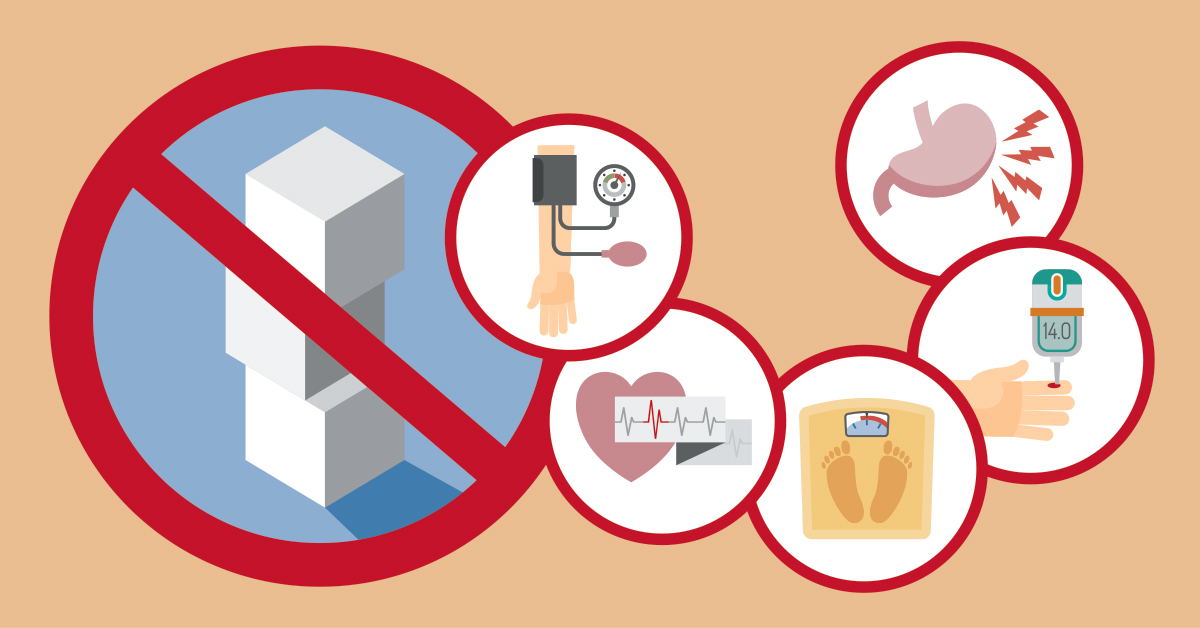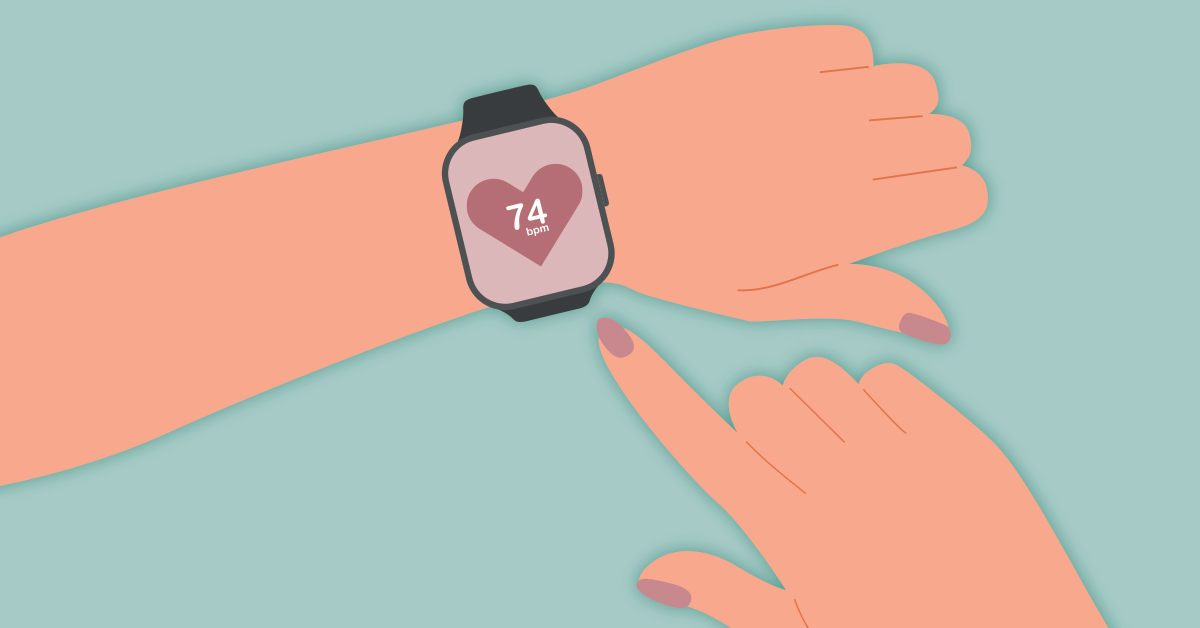10 tips for good sleep management
“Early to bed and early to rise, makes a man healthy, wealthy and wise.”
— Ben Franklin
60% of Americans suffer from poor sleep quality – resulting in absenteeism, falling asleep on the job, irritability, poor memory, relationship problems, car accidents and chronic health issues.
Insomnia can be a symptom of other health-related issues such as sleep apnea, menopause, chronic pain, acid reflux, anxiety, depression, and emotional stress.
Why must we sleep?
(No, it’s not so we can escape the wrath of dangerous nocturnal predators!)
When explaining the benefits of sleep, physiology experts cite “restoration” – where the metabolic activity of cells work to repair tissue damage and keep our bodies in homeostasis.
Psychologists explain that the conscious mind needs to rest so the unconscious mind can problem-solve and consolidate memories.
Dreams are the mind’s way of resolving personal issues and offering us creative solutions to our problems.
The science behind sleep
- The brain’s glial cells work during sleep to remove toxic amyloid proteins, which are known to cause dementia and Alzheimers.
- Brain cells that fire repeatedly without rest can create free radicals, which in turn accelerate the aging process. While we sleep, neurons create anti-oxidants that can destroy these free radicals.
- Sleep delays the aging process (by maintaining integrity of telomeres).
- Sleep regulates metabolism and weight.
- Growth hormones are active during sleep; regulating the repair of damaged tissue from exercise or injury.
- During sleep, metabolic activity works to repair bone and muscle tissue.
Beware of sleep robbers!
Be aware that these culprits can rob you of your much-needed sleep. Try to make appropriate adjustments when possible:
- Caffeine
- Heavy Foods
- Cell Phone / Technology Use Medications
- Room Temperature (too warm)
- Sleep Partner Snoring
- Pets in the Bed
- Clutter
- Afternoon Naps (can be both good and bad)
- Shift Work
- Jet Lag
- Lack of Exercise
- Sleep Apnea
- Frequent Urination
- Chronic Pain
- Depression /Anxiety
- Stress
10 tips for good sleep management
Keep regular sleep cycle
Maintain a routine every night (within 15 minutes).
Institute a digital curfew
Turn off all digital devices one hour before bed.
Create your ideal sleep environment
- Ambiance – light/darkness
- Room temperature – avoid a warm (or uncomfortably warm) sleep space.
- Pets: healthy boundaries –keep pets out of bedroom.
- Tech-free bedroom – (No screens or gadgets!)
- Sleep comfort – don’t forget the quality of your bedding! (High thread count sheets, comfortable pillows, good mattress pad etc.)
- Quiet bedroom – noise reduction; use white noise if needed to drown out distracting sounds.
- Sleep partner – if snoring and/or restlessness interrupt sleep you might consider sleeping in separate beds.
- Food and snacks – consider a “no food in bedroom” policy.
- Other distractions – be aware of sleep distractions leading up to bedtime and during sleeping hours. Be creative to find changes in routine or environment to improve your sleep quality.
Add exercise to your daily routine
Decrease your caffeine intake
Learn to meditate
Throw out your TV
Consider moving TV out of bedroom.
Avoid alcohol and nicotine
Clear your late night mind
Make a to-do list before bed. Keep it handy near your bed to add to it if things come to mind during the night.
Remove non-sleep activities from your bedroom
(Office supplies and duties, TV, food, etc.) Your bed is for sleep (and sex)!
Sleep well!
3 important things to remember:
- Sleep is essential to good health
- Reduce those sleep robbers
- Create your ideal sleep environment


